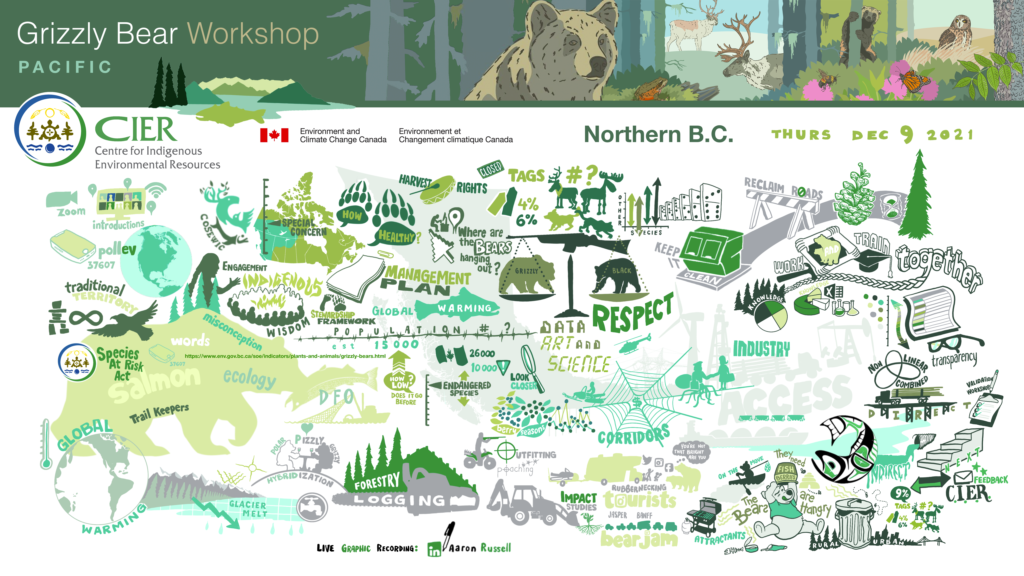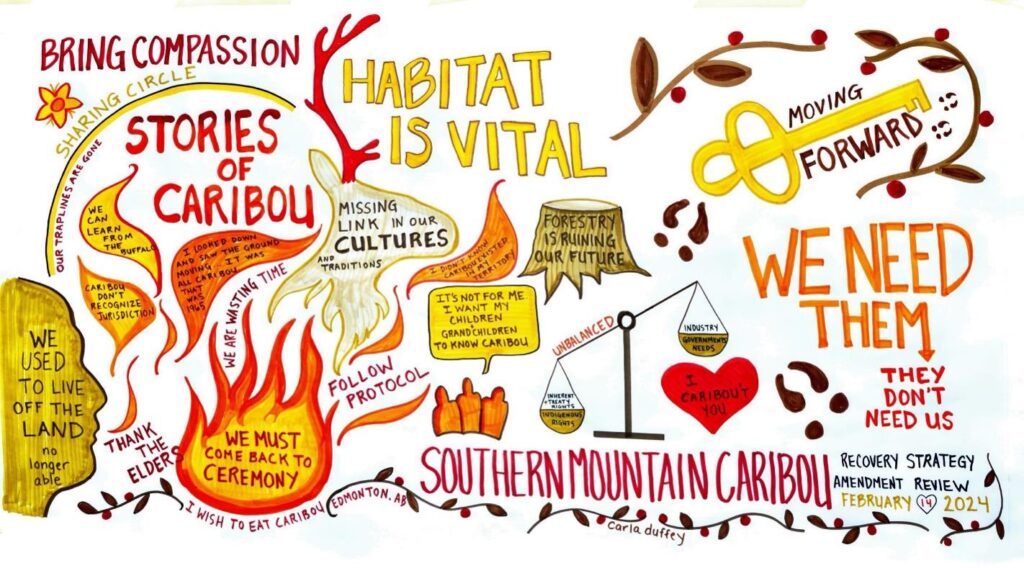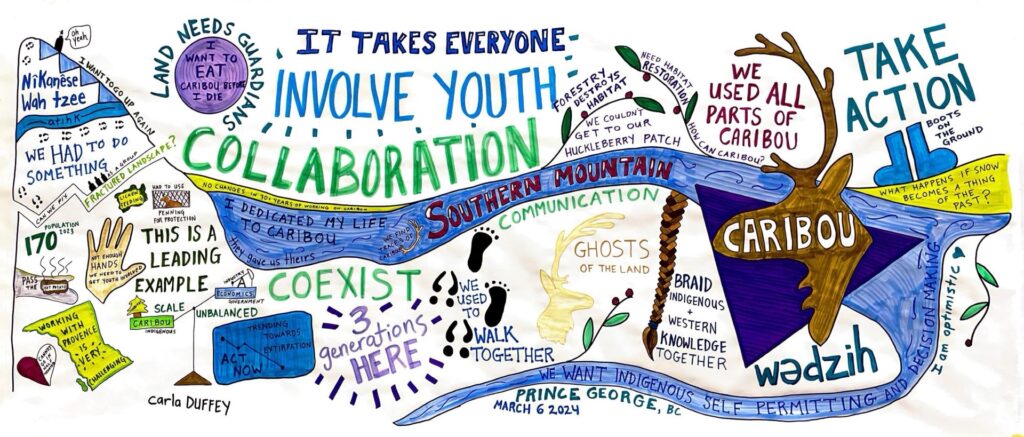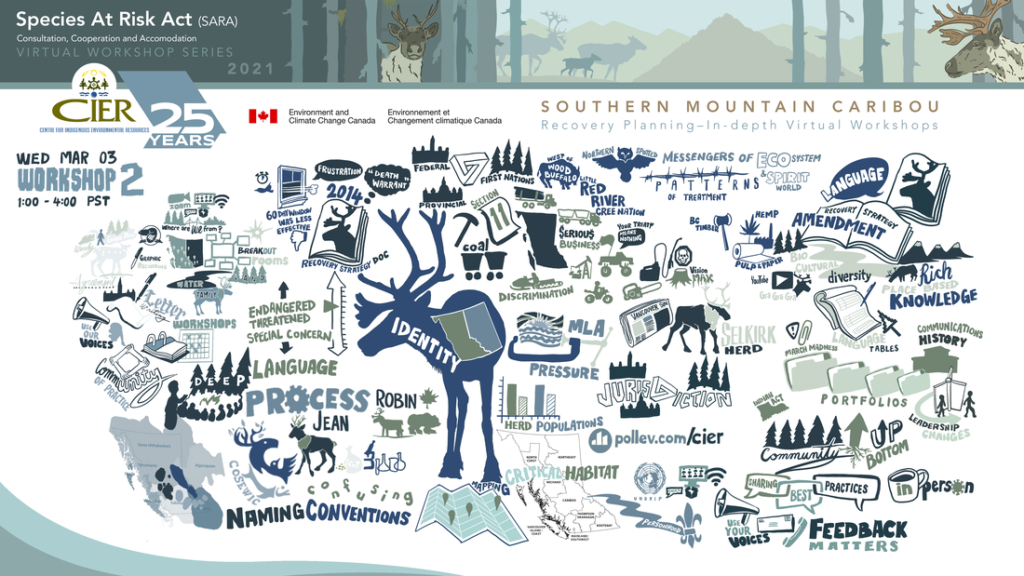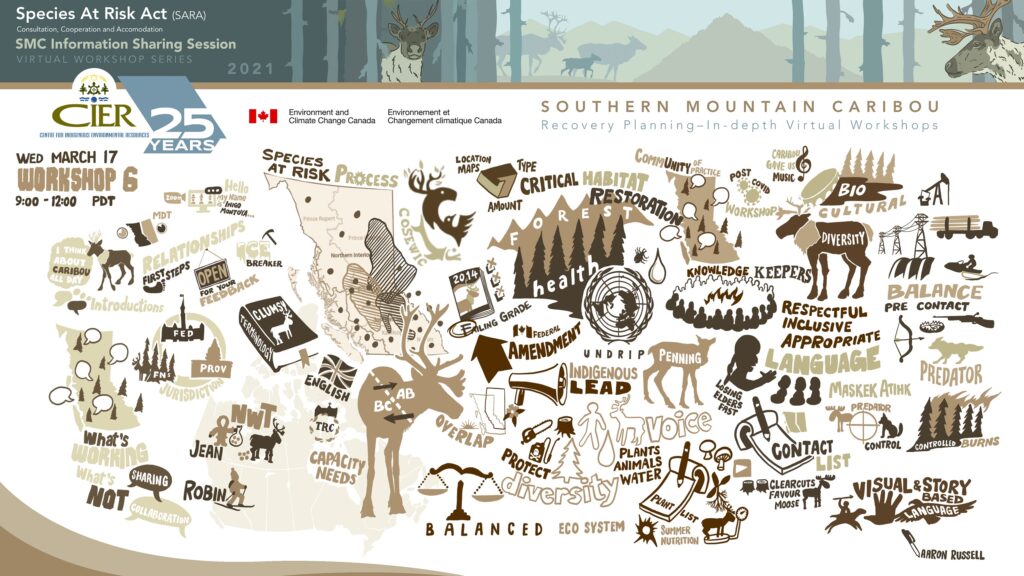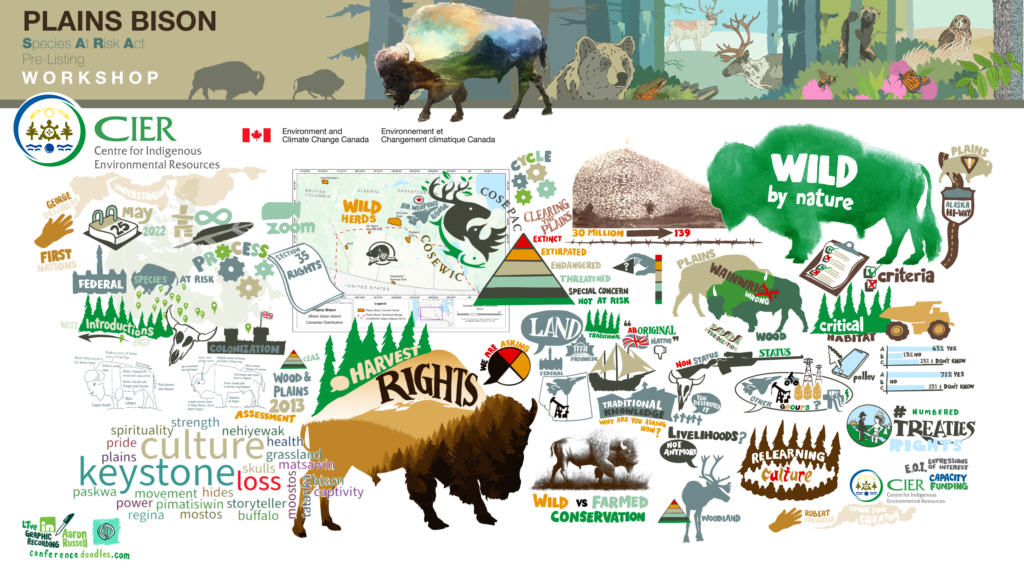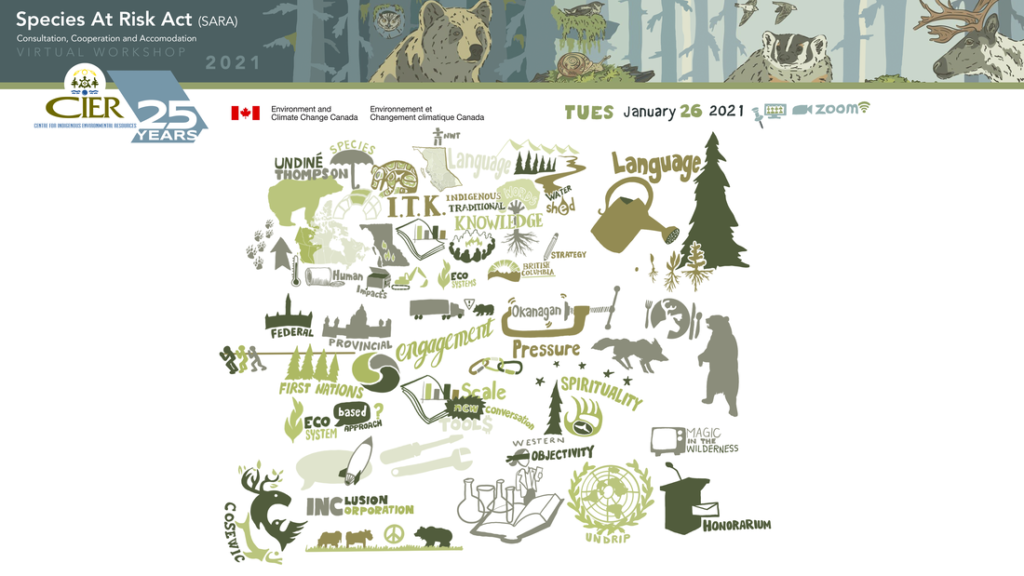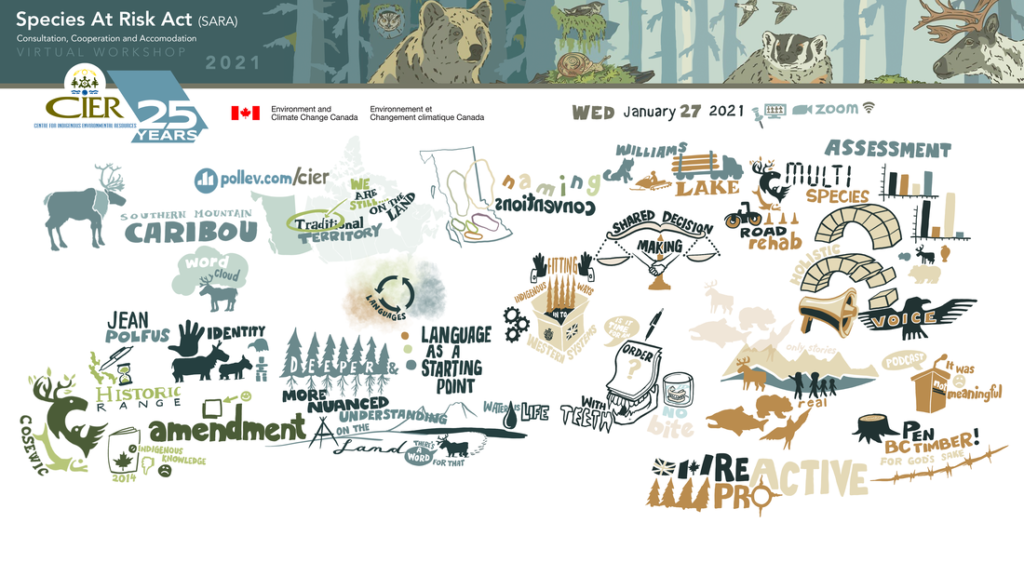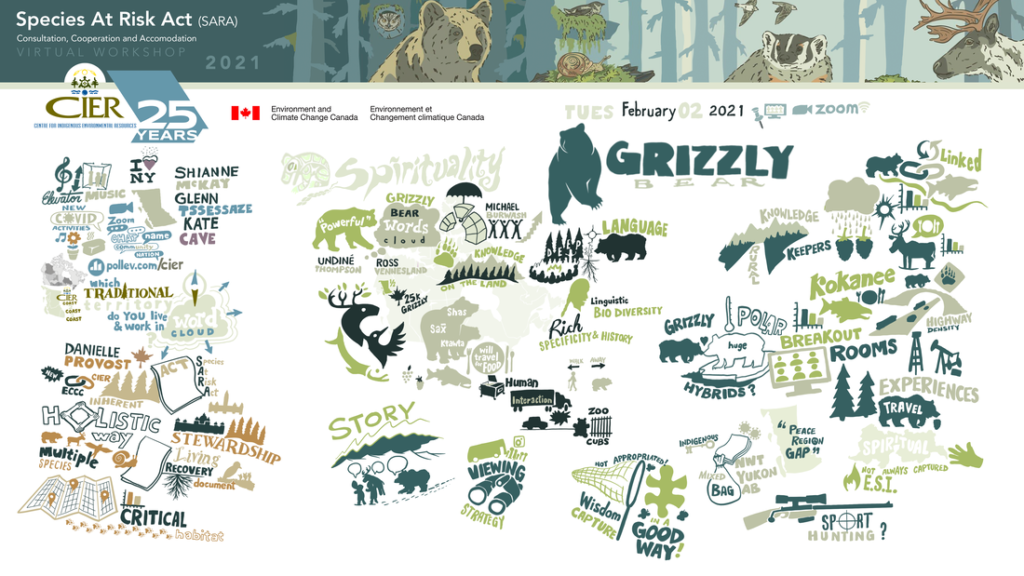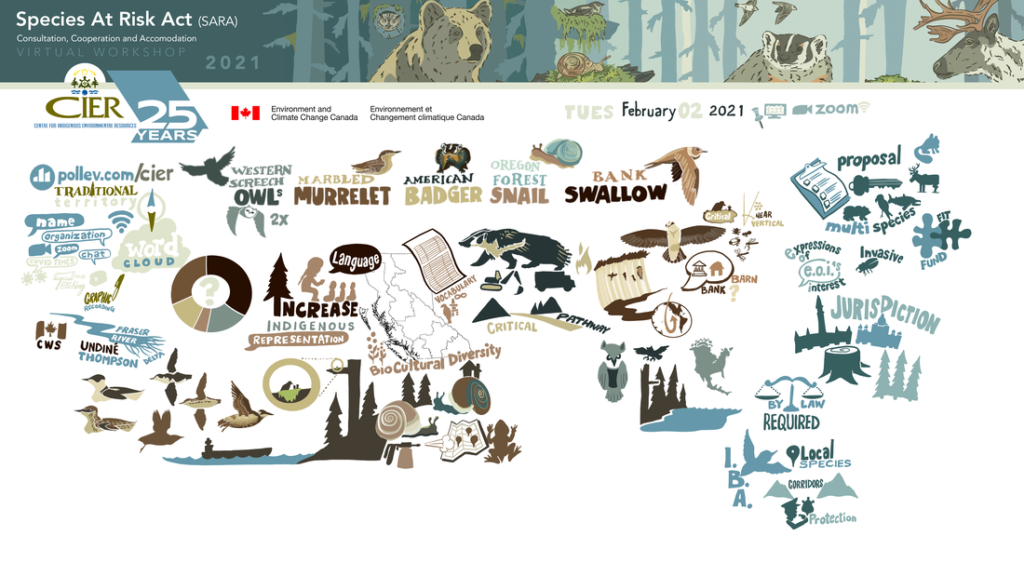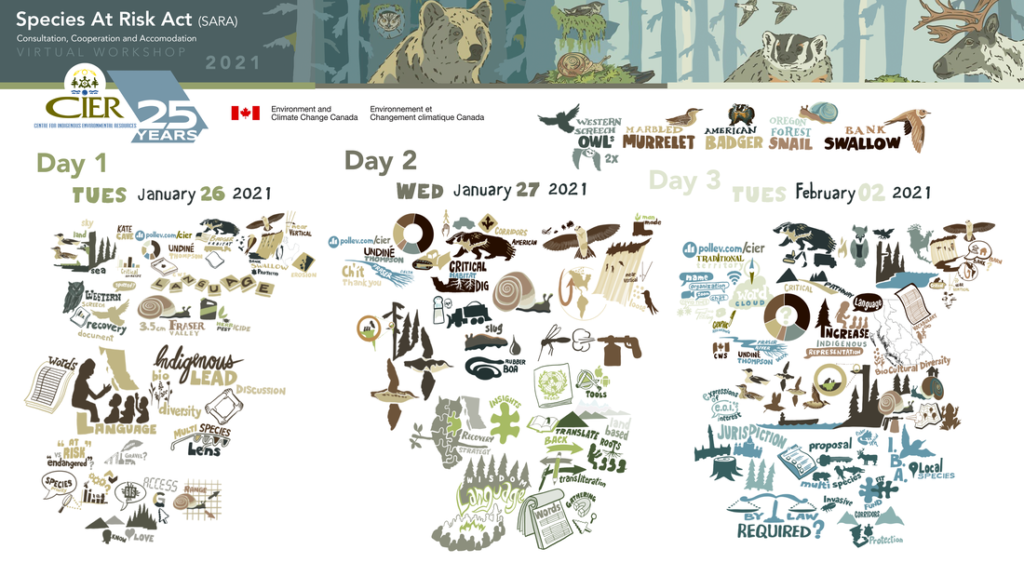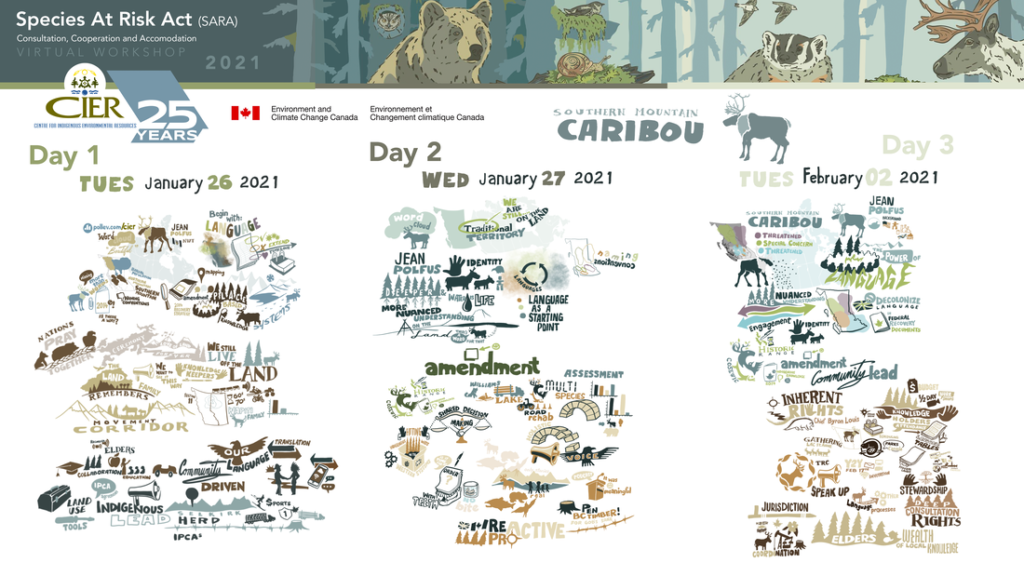Species at Risk Act (SARA) Consultation, Cooperation and Accommodation Project
Project Overview
This multi-year project will facilitate Indigenous communities’ and organizations’ participation in Environment and Climate Change Canada’s (ECCC) listing and recovery planning processes for terrestrial species as part of implementing the federal Species at Risk Act. CIER’s role is to support a range of activities between Indigenous communities and organizations and ECCC on developing recovery documents, sharing knowledge and language, addressing threats to terrestrial species at risk survival and recovery, and land use planning for species at risk on reserve lands and within traditional territories.
2020-2021 Pilot project: Prior to the start of the multi-year project, the Centre for Indigenous Environmental Resources (CIER) partnered with Environment and Climate Change Canada (ECCC) to undertake a pilot project in British Columbia. This project facilitated Indigenous communities’ and organizations’ participation in federal recovery planning for seven terrestrial Species at Risk: Grizzly Bear, Southern Mountain Caribou, Bank Swallow, Western Screech-Owl, Oregon Forestsnail, American Badger, and Marbled Murrelet. The multi-year project is a continuation of this work.
Species at Risk List
ECCC is continuously listing and reassessing the status of species under the Species at Risk Act and developing recovery documents for those that are listed as special concern, threatened or endangered. The focus of the SARA Consultation, Cooperation and Accommodation Project is on those species that are actively undergoing the listing process or recovery document development. The list below is subject to change over time.
Upcoming Events
Funding Support and Information Session: Recovery Planning of Terrestrial Species at Risk
January 15, 2025: 9:30 – 11:00 PT / 11:30 – 1:00 CT / 12:30 – 2:00 ET
We are inviting applications for funding to support Indigenous Nations’ participation in Environment and Climate Change Canada’s (ECCC) listing and recovery planning processes for terrestrial species at risk. We are also holding an information session to provide an overview of this initiative and the funding available to support involvement in the different project components for the final year of the project. The information session will be held on January 15th from 9:30 – 11:00 PT/11:30 – 1:00 CT/12:30 – 2:00 ET. During this session, further explanation will be provided with opportunity for questions and discussion. To register for this session, please select the link below.
January Learning Circle with the IISAAK OLAM Foundation
January 31, 2025: 12:00 – 1:00 p.m. PT
The Centre for Indigenous Environmental Resources (CIER), with financial support from Environment and Climate Change Canada, Canadian Wildlife Service (ECCC-CWS) invite you to join our next online Learning Circle on Friday January 31st from 12 – 1 pm Pacific Time. CIER’s Learning Circles are an opportunity for Indigenous Nations/organizations and their close partners to share learnings from projects related to species at risk.
Our January Learning Circle will be a discussion on Indigenous Protected and Conserved Areas (IPCAs) led by the IISAAK OLAM Foundation (IOF). IOF is an Indigenous-led educational non-profit focused on the protection and conservation of bio-cultural diversity. IOF’s projects, programs and collaborations support Indigenous leadership in the conservation of biological and cultural diversity, the development of abundant and resilient communities, reconciliation between Indigenous and new-comer societies, and innovative solutions for (re)connecting people with their environment. The ultimate purpose of IOF is to support the establishment and long-term capacity of IPCAs and to educate all sectors about their value and relevance.
We are lucky to have the discussion led by Eli Enns, IOF CEO and President and Founder of the Naa’Waya’Sum Gardens in Tofino, Clayoquot Sound. Please see Eli’s full bio >
You can register by clicking here or below through Zoom. This session is open to anyone in your community or organization interested in attending, so please feel free to share this invitation.
Register in advance for this meeting
After registering, you will receive a confirmation email containing information about joining the meeting.
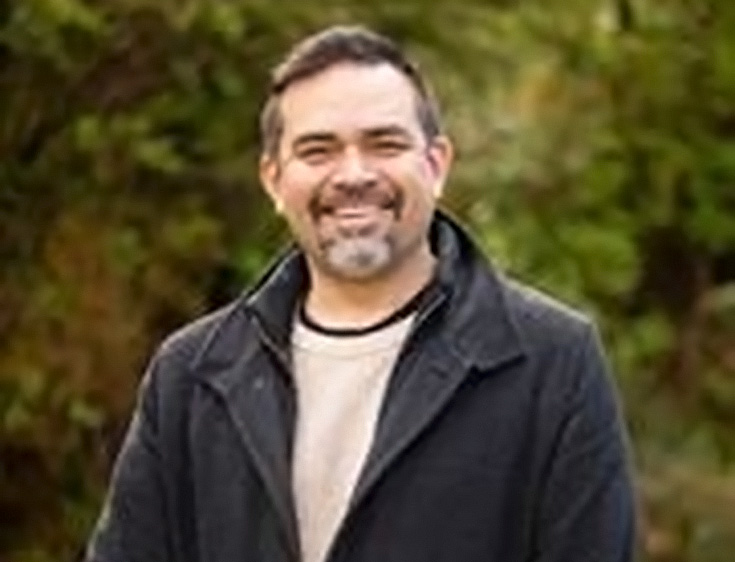
Eli Enns is the great grandson of Na’waas’um (historian and public speaker for Wickanninish) from Tla-o-qui-aht on his father’s side. On his mother’s side, Eli is a 2nd generation immigrant from the Netherlands, grandson of Peter Enns (Dutch Mennonite). He is a happy father and a grateful grandfather.
Eli is also an internationally recognized expert in bio-cultural heritage conservation and Indigenous economic development. He is a nation builder and Canadian political scientist focused in constitutional law, geopolitics and ecological governance. Co-founder of the Ha’uukmin Tribal Park in the Clayoquot Sound UNESCO Biosphere Reserve on Vancouver Island, Eli was Co-Chair for The Indigenous Circle of Experts for The Pathway to Canada Target 1 (Aichi Target 11). He is CEO and President of the IISAAK OLAM Foundation and Founder of the Naa’Waya’Sum Gardens in Tofino, Clayoquot Sound.
Resources
On this webpage you will find the materials shared at the sessions included in this project (e.g., SARA overview sessions, species specific workshops, training sessions, information sharing sessions, funding application forms). You will also find helpful species at risk related tools and resources. Click on the topic headings to see a drop-down list of the associated resources.
Contact
Kat Hewitt, Project Manager, CIER ([email protected])
Kate Cave, Senior Project Manager, CIER ([email protected])
Jean Polfus, Southern Mountain Caribou Project Lead, ([email protected])
Undiné Thompson, Senior Consultation Biologist, ECCC-CWS for questions related to any other species ([email protected])
